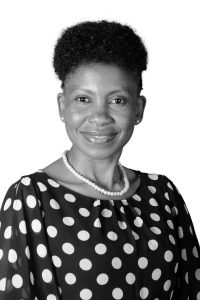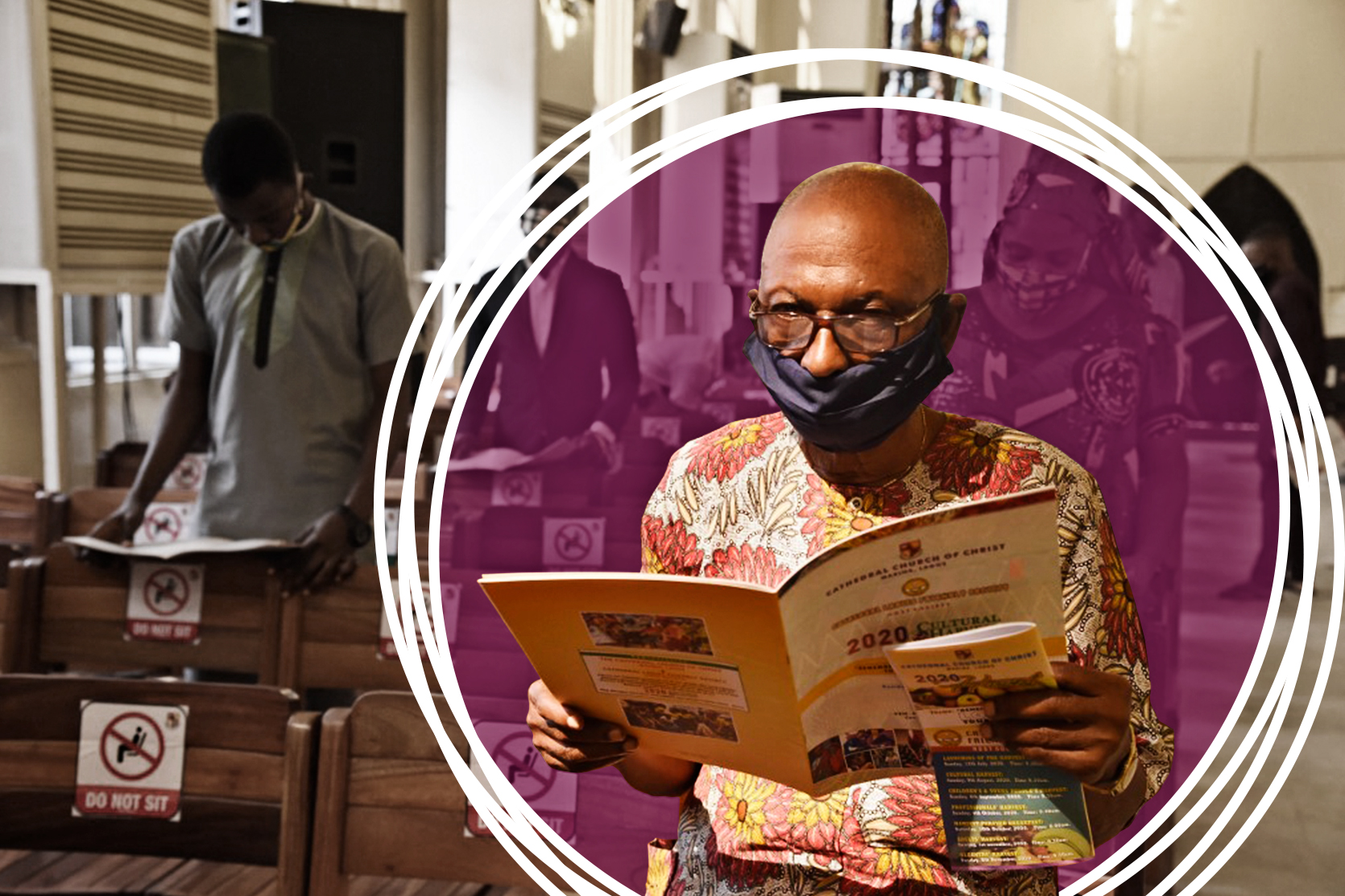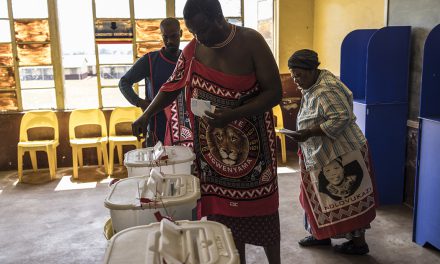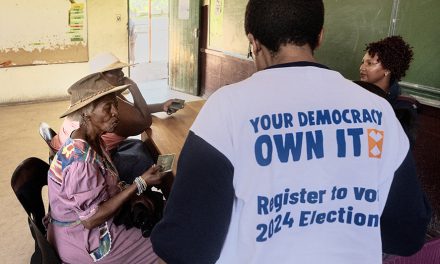The contest primarily boiled down to a fierce battle between the ruling Zanu PF, led by Emmerson Mnangagwa, and the Citizens Coalition for Change (CCC) headed by Nelson Chamisa.
Despite the veneer of peace, the atmosphere remained charged with tension throughout the election process.
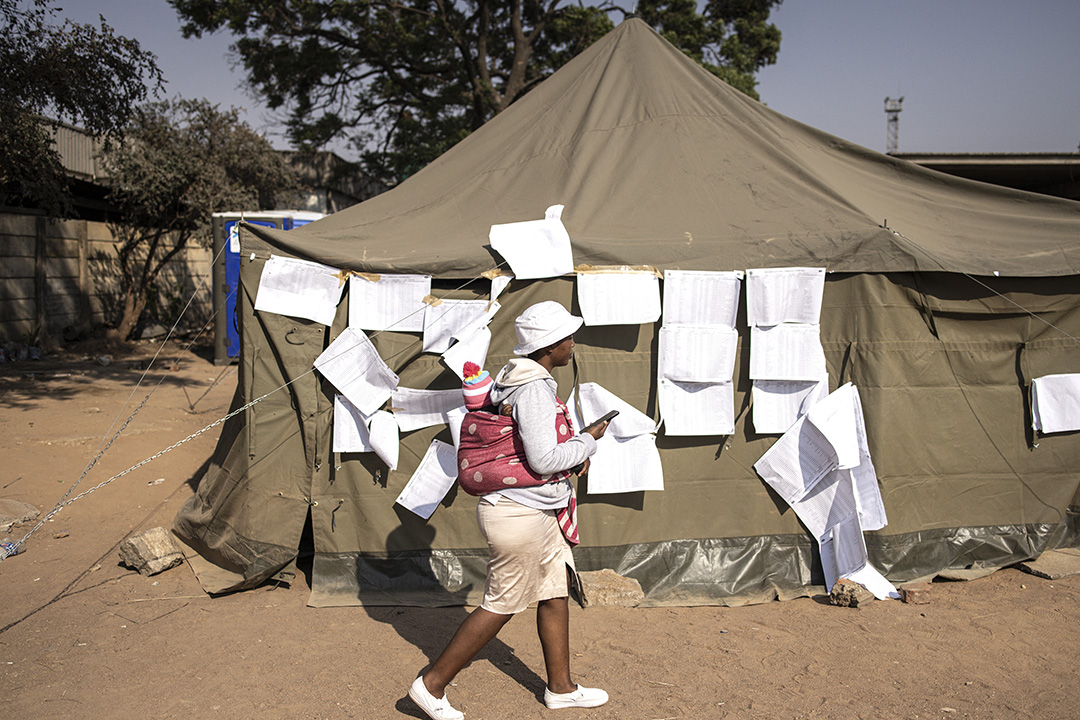
A woman walks past the voters’ roll at a polling station during the presidential and legislative elections in Harare, on August 24, 2023. Photo by JOHN WESSELS/AFP
Troublingly, several irregularities marred the voting process, particularly in opposition strongholds where ballot papers arrived hours late.
Adding to the unease, a shadowy group affiliated with Zanu PF, known as Forever Associates Zimbabwe, deployed what they termed “exit polls” near rural polling stations, effectively coercing voters towards Zanu PF.
Even though the voting period was extended until August 24th, international election observer teams found that the elections failed to meet the standards for being free, fair, and credible.
In its preliminary report, the Sadc electoral observer mission highlighted a range of concerns that include:
- Delimitation process flaws.
- Delayed release of the Voters Roll.
- Restrictive fees for accessing the Voters Roll.
- Disruption of CCC rallies by the police, infringing upon the right to Freedom of Assembly.
- Concerns regarding the unconstitutional Patriotic Bill that curtails Freedom of Speech.
- Unconstitutional disqualification of presidential aspirant Saviour Kasukuwere.
- Restrictive nomination fees are a barrier for many candidates.
Despite these concerns, the Zimbabwe Electoral Commission announced election results, proclaiming Mnangagwa as the president-elect with 52.6% of the vote.
Zanu PF secured 136 seats out of 210 in Parliament, falling short of the coveted 2/3 majority. CCC, with 73 parliamentary seats, vehemently contested the results, with Chamisa refusing to endorse them.
Although the CCC spokesperson, Promise Mkhwananzi indicated that the party was following “a multi-pronged approach that includes the “legal, political, diplomatic…”, the party has already withdrawn its initial plan to launch a legal challenge of the election outcome, citing concerns that the judiciary is captured.
This limits the domestic avenues the party can pursue while any regional and international efforts may only yield reform that can best serve the next election. In spite of its demands, realistically, a fresh election is, at this point, unlikely.
The CCC party faces a dilemma, firstly because in spite of the dispute that hangs over this election, Mnangagwa was inaugurated on the 4th of September, and secondly, CCC’s winning local government and parliamentary candidates have since taken the oath of office on the basis of this disputed poll and its ongoing call for fresh elections.
It is a complex challenge for which the CCC must urgently map critical strategies for the future, which unfortunately seem to be very limited.
However, the CCC can build on the momentum of this fresh mandate through efforts to rebuild citizens’ trust in the opposition party’s capacity.
The most immediate task is to honour this recent mandate by taking effective steps to contest this election and call for electoral reform at the local, regional and global levels. Presently, those who entrusted the CCC with their vote remain in suspense regarding its next move.
A more audible message of not only protesting but presenting its own authentic evidence of irregularities in spite of the CCC wins will foster citizens’ confidence in the party’s commitment to a free, fair and credible election and not just individuals’ interest in political positions.
Through its young and eloquent MPs, the CCC should prioritise electoral reform now that the 10th Parliament has convened, resisting the lure of parliamentary privileges, and focusing on advancing crucial reforms.
Chamisa, in particular, should assume the official leader of the opposition position in Parliament, advocating for electoral reforms from within.
This position is vital for him to lead the team effectively.
On September 6 and 7 all the party’s elected local government and parliamentary officials were sworn in.
Although the party stands accused of hypocrisy from taking up office on the premise of an election that it has rejected, it must protect its place at the decision-making table.
However, this should be well managed as it poses the risk of dividing the party’s candidates into winners and losers, to its detriment.
If the CCC is going to stand up to its opponent’s machinations, it has to surmount this potential risk and map strategies of pulling together as a cohesive unit that can seize potential opportunities in service to the citizens of Zimbabwe.
In anticipation of Mnangagwa’s focus on legacy projects during his last term, the opposition must become well-organized and formidable if they aim to compete in the 2028 elections. Otherwise, they may face a formidable Zanu PF in the upcoming political landscape.

